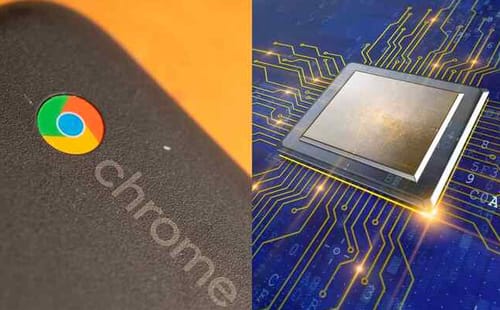 |
| Google is developing a dedicated processor for Chromebook |
Google is developing its own processors for laptops and tablets, the latest sign that major tech companies see in-house chip development as key to their competitive advantage.
The search giant plans to release processors for Chrome OS laptops and tablets in 2023.
After announcing the first use of the internal processor chip in the upcoming Pixel 6 series, the company has also stepped up its efforts to develop mobile processors for Pixel smartphones and other devices.
The company is increasingly focusing on developing its own chips at a time when global competitors are pursuing similar strategies to differentiate their products.
Amazon, Facebook, Microsoft, Tesla, Baidu and Alibaba are struggling to build their own semiconductors to support their cloud services and electronics.
Apple's success in developing its own key semiconductor components for the iPhone and its announcement last year that it would replace Intel processors with its own for Mac laptops and desktop computers has particularly inspired Google.
The new mobile processors and processors that Google is developing are based on Arm chip solutions, and the British chip company, controlled by SoftBank, uses its intellectual property in more than 90% of the world's mobile devices.
In addition, the company has high hopes for the Pixel 6 series and has asked suppliers to increase mobile phone production capacity by 50% in 2019 to pre-pandemic levels.
Google shipped more than 7 million Pixel phones in 2019, which is a record. However, according to research firm IDC, 3.7 million mobile phones were shipped the following year when the virus hit the world.
The company told several vendors at a recent conference that it sees huge growth potential in the global market. In fact, it is the only smartphone manufacturer in the US that uses the Android operating system to manufacture smartphones.
Google is developing a dedicated processor for Chromebook
In terms of chip development, experts consider Google's strategy a logical step. But it is not without challenges.
All tech giants have joined the movement to build their own custom chips as this allows them to program their own functionality into chips that fit their specific needs.
When this happens, these technology companies can customize their research and development workload and provide unique services or technologies without restricting vendors. Using dedicated chips also means better integration between software and hardware.
However, building a chip requires a huge investment and a long-term commitment. All of the new technology companies that make chips must also compete for manufacturing capacity with today's top chip developers such as Intel, Nvidia, and Qualcomm.
Today, the cost of designing modern 5nm chips is about $500 million, while the cost of using mature manufacturing techniques (such as 28nm technology) to develop chips is about $50 million.
Few players have the ability or the financial means to design their own chips. Thus, players who are considering this path are often big players. Such as cloud service providers, or they have very valuable applications for these specially designed chips.
Google started developing TPU in 2016 to ease the computational workloads of AI in its cloud servers in the data center.
He showed the fourth generation of TPU in May. It hires engineers from all over the world. It attracts talent from big vendors such as Intel, Qualcomm and MediaTek.
